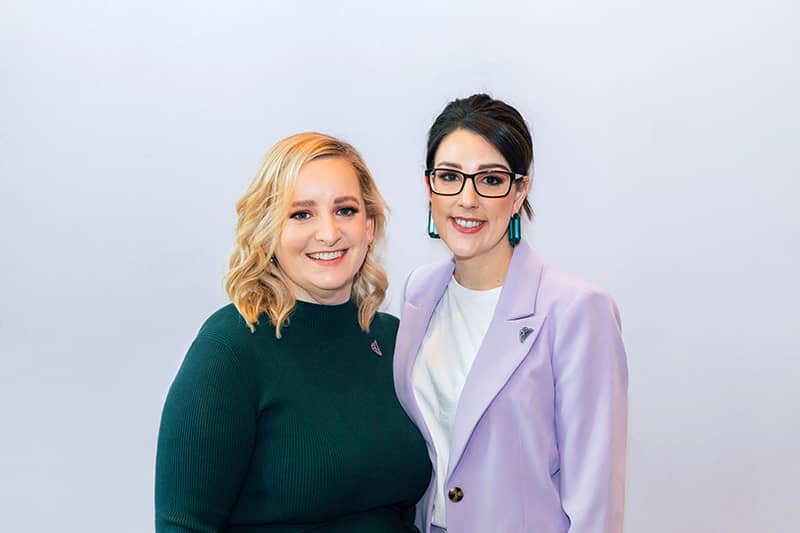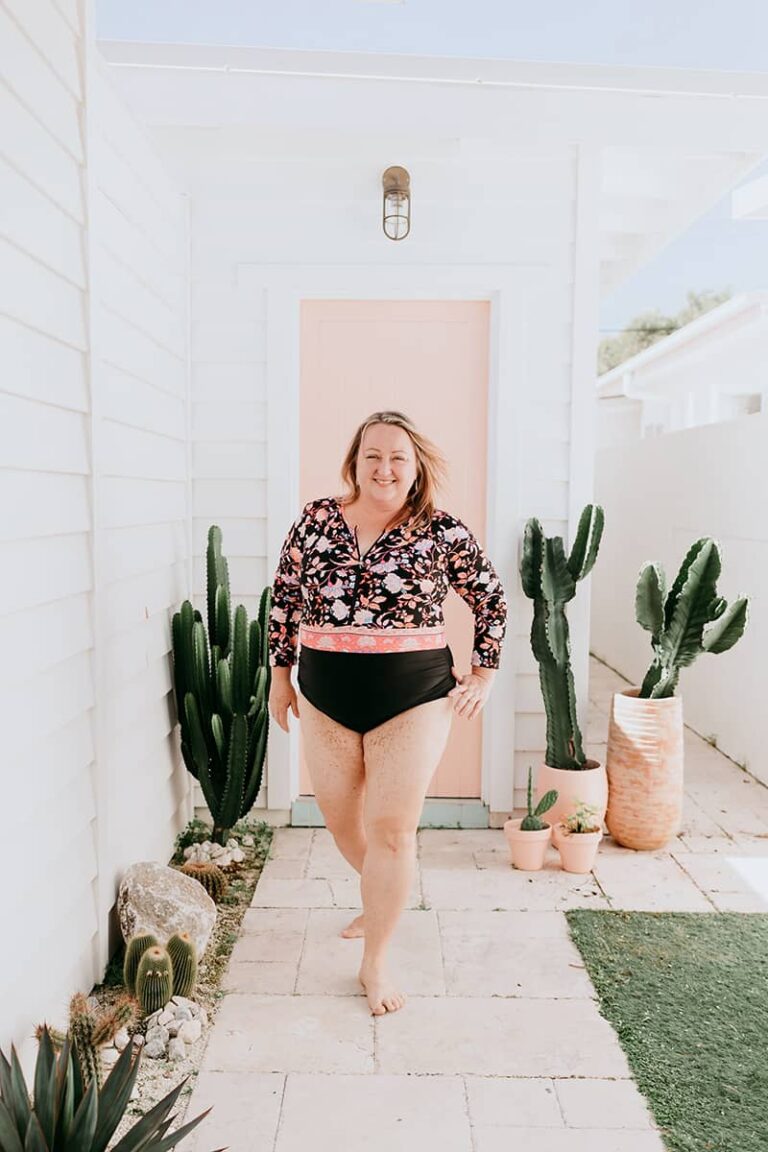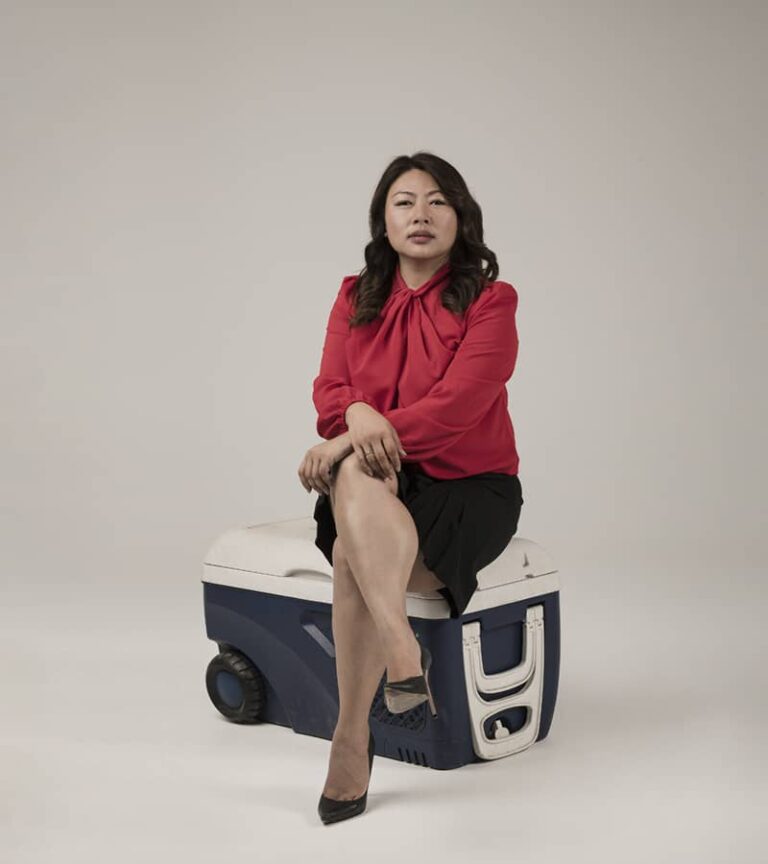I had a very close and special relationship with my mum, Rosa. We talked about everything, and I never once doubted the love she had for me. It was unconditional and so was her encouragement around everything I wanted to achieve in life. When I think of her it’s always of an amazing mum that offered me and my younger brother, Dean, a great childhood.
I was 21 when, in 2010, mum was diagnosed with an advanced and aggressive form of uterine cancer. Over the next two years she underwent a full hysterectomy, 12 rounds of chemotherapy treatment and six weeks of radiation. However, the cancer was too aggressive. It spread and caused major complications, including an infection which resulted in her dying from sepsis in hospital, in 2012, age 56.
Even though we were informed by her medical team early on that her chances of being cured were slim, her death was still very much unexpected. I felt as though my whole life had fallen apart and I found it difficult to contemplate the finality associated with her death. I somehow thought she would be coming back and constructed all these fantasies in my mind. But she wasn’t. The fact that we weren’t able to share and celebrate meaningful milestones, like my university graduation as a teacher or have some important final conversations because she was too ill, made it even harder for me to accept her loss. The emptiness, shock and utter heartbreak her passing left in my life was overwhelming.
Gradually, I began distancing myself from my friends because I didn’t feel they truly understood what I was going through and that left me feeling misunderstood and lonely. I also had to pretty quickly step in and support my younger brother and start my first year of teaching. The new responsibility and lack of maternal support I felt significantly heightened my loneliness and increasingly challenged the deep sense of grief I was experiencing. Support from a psychologist proved futile. She herself hadn’t experienced mother loss, so without that lived experience I sensed she wouldn’t be helpful, so I stopped. In hindsight, I probably shouldn’t have seen someone within six months of my loss, because it wasn’t necessary – I was grieving in a healthy and expected way.
My mum’s unlimited love was something I searched for in a number of people after she died, but none beat what mum could give. When my life became challenging, crying in her lap and the feeling of her stroking my hair was no longer possible and having to seek my own ways to self soothe highlighted what I was missing so deeply.
Experiencing connection
Just under a year from my mum dying and driven by feelings of isolation, sadness and the need to find a kindred spirit, I reached out on the American Mother Loss Facebook group and asked if there was anyone else from my home town of Melbourne who had lost her mum and would like to connect and meet up with me.
Very quickly I received a message from Eloise Baker, also 23 at the time, who had lost her mum aged 13 from a heart attack. We initially began sending messages back and forth and the similarities we discovered we shared were just uncanny. In addition to being the same age, our birthdays are only one day apart, our mums were born the same year, both our dads are tradesmen and we both have brothers.
Six months later we met up and that’s when we started to get to know each other on a deeper level. Personally knowing that there’s someone else like me, who had lost their mum prematurely, has been very comforting and has lifted the isolation I was confronted with. Eloise is now like a sister to me. We speak every single day and we’re at a point where we finish each other’s sentences.
Through the years, providing that maternal presence for each other has also helped both of us re-establish those feelings of guidance and understanding that we lost. When we both went through significant relationship breakdowns last year, we were there for each other. Whenever possible, we accompany each other to doctor’s appointments that we would have gone to with our mums. Eloise has been a source of strength to me throughout my 10 years of abnormal pap smear results which have resulted in three surgeries. And even just for the little everyday things in life we would go to our mums for, like how to get a stain off clothes – we reach out to each other.
Importantly, we’ve been present for each other’s milestones. I was Eloise’s bridesmaid, I was there shortly after she had her daughter, Matilda, and we were at each other’s 30th birthday. At times like these our relationship makes it a little bit easier and soothes the absence of our mums.
Creating community
Our greatest achievement together has been co-creating Motherless Daughters Australia, a registered not-for-profit organisation for women, girls and children who’ve experienced mother loss to connect and help each other navigate the everyday and life’s key milestones without their mums.
We’re not clinical, rather we’re focused on the impact of mother loss and supporting those who’ve experienced it, in a way that doesn’t pathologise the grief response but normalises it and provides better pathways for women to access support.
Currently, our network is made up of 15,000 women from Australia. We provide connection through in-person events, such as our annual High Tea held just before Mother’s Day, and we also offer free resources such as Memories of Mum Journals for girls and boys under the age of 12. In 2021, we launched a one-on-one matching program called Friends In Grief, which pairs women together whose mothers died at a similar age and in similar circumstances, so they have a friend who truly gets what they’re going through. Our members also provide informal mentoring and even personal support. For example, one young girl found solace in an older woman who stepped in and went dress shopping with her for her formal, reducing the sadness of not having her mum there for suggestions and help. Further feedback includes women saying how life-changing it is to know they’re not the only ones who felt alone and isolated in their grief, and how freeing it is to be able to speak up about the feelings associated with their loss, and the lifelong impact, without being judged.
Going to Canberra
Earlier this year, our organisation held its inaugural Parliamentary Breakfast event at Parliament House in Canberra. We introduced Motherless Daughters Australia to the Federal Government. We explained how we see MDA as a point of prevention, before women feel the full impact of mother loss in terms of loneliness and isolation (often resulting in the pathologising of grief, mental health diagnoses, and putting pressure on the public health system). We also highlighted the enormous, often ongoing, impacts of premature mother loss and our strong belief that the standard 2-3 days of paid bereavement leave needs to be reviewed, as this contributes to, and perpetuates the notion of grief being something that we are expected to ‘get over’ in a short amount of time. We were positively received by all attendees at our event, including the keynote speakers Member for Wentworth, Allegra Spender, The Hon Minister for Women, Katy Gallagher and Member for Moncrief Angie Bell.
Vital to the progress of our organisation has also been our partnership, in 2020, with the Priceline Sisterhood Foundation. This allowed me to work full-time as Executive Officer of Motherless Daughters Australia and for Eloise to work part-time as our Manager of Community Engagement. Their support and belief in what we do has also funded our website rebuild, the implementation of critical infrastructure, and now research to establish what further support women need and develop programs to bridge that gap.
It’s been 11 years since my mum Rosa’s death and I’m still grieving – for all that was, but for all that should’ve been, too. The difference is that when Mum first died, grief looked like denial and complete and utter shock. Today, it’s part of who I am, and I’ve learned to be comfortable with the emotions. Still, there are peaks and troughs in grief – and it definitely still peaks for me at times, when I least expect it. Like when I’m cooking. Mum was an amazing cook and I have lots of memories around us baking together and her teaching me how to make Italian foods. Today when I cook, I feel close to her and it’s my way of incorporating her into my life.
Living with sadness
When grief does tug at my heart in an overbearing way, I nurture it and it slowly transforms into love. Equally, running the organisation has given my grief meaning and purpose.
I’m not sure if I’ll ever be able to marry or have children without her. This is something I struggle with. Because she won’t be there to go dress shopping, I also don’t want to go through a wedding day without her. And sometimes I feel it might all be too hard to even have kids without my mum’s support. This is a sentiment many girls in our community also share.
Grief is strange – there’s no end to it, but it does change over time. And in a way, I kind of don’t want it to ever stop, because it’s all I’ve got left to express my love for my mum.
Supporting children & youth in grief
Grief after a painful or traumatic loss can be felt physically, emotionally, mentally and spiritually and can include deep feelings of sadness, difficulties with sleeping, concentrating on work or school performance. Some may even experience positive transformations, such as post-traumatic or personal growth, because of their struggles and ‘life lessons’ learnt in the aftermath of the bereavement.
“How one experiences grief or for how long is subjective, meaning everyone goes through the bereavement process in their own unique way, and the grief response and time frame varies from one person to the next,” says New Zealand-based Dr Lucy Hone, co-founder of Coping With Loss program and author of Resilient Grieving: How to find your way through devastating loss.
“While most bereaved individuals adjust to the loss of a loved one without professional intervention by using ordinary processes such as leaning on friends or talking about their feelings with a surviving parent, a significant minority experience a persistent, severe and disabling grief reaction, called Prolonged Grief Disorder (PGD),” explains Dr Hone.
Around five to 10 per cent of children and adolescents who have lost a loved one will experience prolonged grief disorder, characterised by intense and persistent grief that causes problems and interferes with daily.
“The most vital assistance you can offer is to re-establish the usual routines as much as possible, and know that a connected family unit is the best protection you can give them,” says Dr Hone.
Ways a child or teen can be supported, according to Dr Hone, include:
Validate their emotions and behaviour; that what they’re feeling is ‘normal’.
Give them hope that their grief will change in time and won’t always feel this awful.
Let them know you’re always there to talk to; discuss who else they might talk to.
Keep the memory of the lost parent alive by continuing to talk about them and identify personal rituals to help them feel connected to their parent.
Make sure they know the death was not their fault and wasn’t something they could have prevented.
Provide reassurance.
For more support, visit motherlessdaughters.com.au; canteen.org.au; themenstable.org







